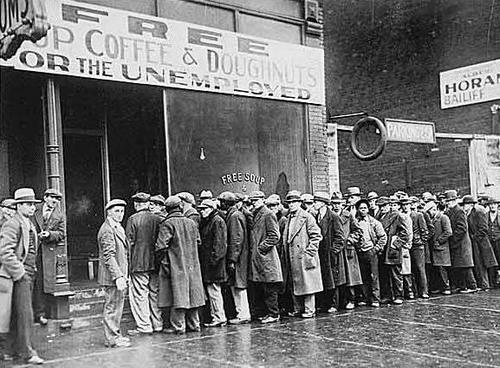As we are about to enter year 5 of this ‘Great Recession’, I have been trying to remember how things were before 2007 and over the last few years, take an inventory of what I have seen and heard in my daily and professional life. Pearl Buck famously said, “If you want to understand today, you have to search yesterday.”
So, here is what I’ve found:
Surprisingly, it seems that almost everywhere I look jobs are being offered. ‘Help Wanted’ signs are creeping up both in store fronts and on internet websites. If you know where to look and you have the skills needed for this new economy, there is a job for the taking. I don’t know if unemployment checks are keeping potential workers at home, but there are opportunities out there.
Construction has been virtually nonexistent, while remodeling is certainly in vogue. Just about the only place I see construction anymore, is in very close proximity to one of those American Recovery and Reinvestment Act signs. Infrastructure spending has been the lifeblood of this industry but that can’t continue indefinitely.
What about the consumer? When the market tanked in 2007 and a lot of folks began losing their homes, jobs, and investment accounts, something happened to the American consumer: they stopped spending on things they didn’t need and they started to save.
People are now more conscious than ever about saving money. Clients in my CPA office generally say one of two things to me (or both): How can I make my money work harder for me and how can I keep more of my paycheck every month? I’ve heard these questions a lot over the years, and in good times it was followed with, ‘…because I want to buy a boat/vacation home/etc’. Now, people simply want to keep their homes and hopefully put their kids through college.
Is this a welcome development for the consumer-driven America? Not likely, but it probably should be. Last week I talked about how the Fed is hoping to use propaganda to trick Americans into spending more money in hopes that it will stimulate the economy.
Obviously, that is a bad thing, but I’ll go one step further and say we need to keep saving, and not just because the Fed doesn’t want us to. While housing continues to struggle, we are certainly seeing some signs of recovery in the stock market and there are signs of life for those seeking employment. Fed chairman Ben Bernanke has said that we are looking at a long-term cycle of recession and I am inclined to agree with him.
However, the way out of this recession is not going to be increased consumer spending. More spending will be a sign that recovery is happening, something the government doesn’t seem to understand.
Bear with me for a flashback to your 6th grade science class. When the human body begins to get cold, there is a domino effect of actions that begin to occur. Shivering, goose bumps and chattering teeth are all early warning signs to put some clothes on or move someplace warmer. Eventually, if the body is left unattended, it will begin to shut down non-essential components. The hands and feet are usually the first to go as warm blood is restricted to keeping essential organs operating.
Why the anatomy refresher? Because this is a great image for how a healthy economy should work. There were warning signs in 2006 that highlighted problems, with lending for real estate and other big ticket items. Nothing was done about it. By 2007 banks were firmly entrenched in leveraged lending and derivatives trading; setting themselves up for huge losses. Nothing was done. In 2008 the stock market crashed and our nation reached a point where nothing much could have been done to stop the bleeding. We failed as a society and government to read the warning signs and we didn’t do anything to stop them…But that doesn’t mean we can’t do something about it now. I believe that in the end, this recession will make Americans stronger, wiser and more savvy consumers.
History is the sum total of the things that could have been avoided. -Konrad Adenauer

COMMENTS
Please let us know if you're having issues with commenting.